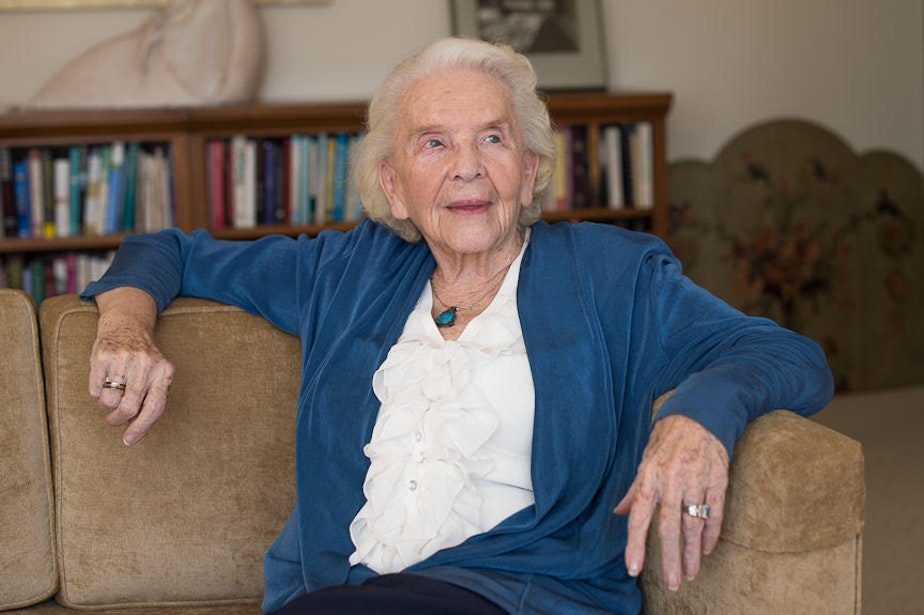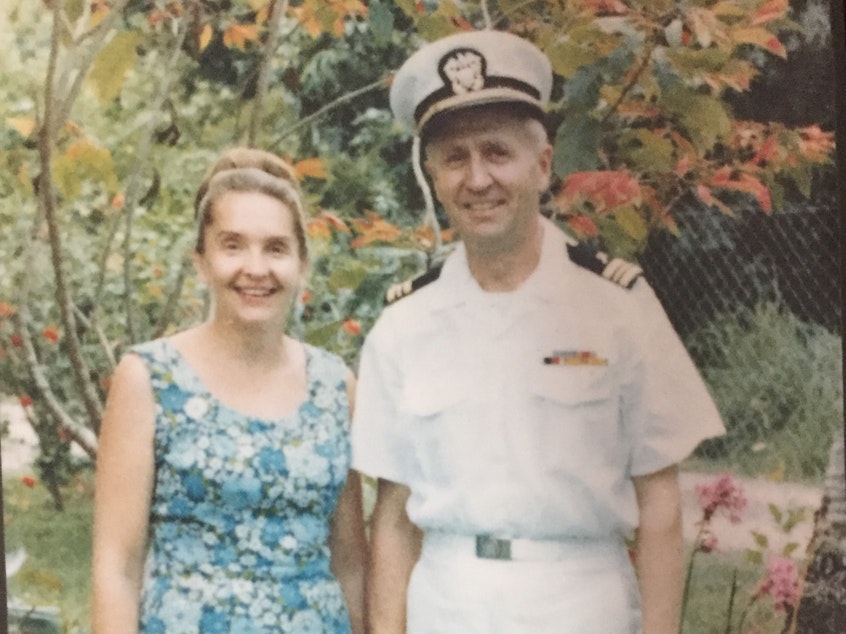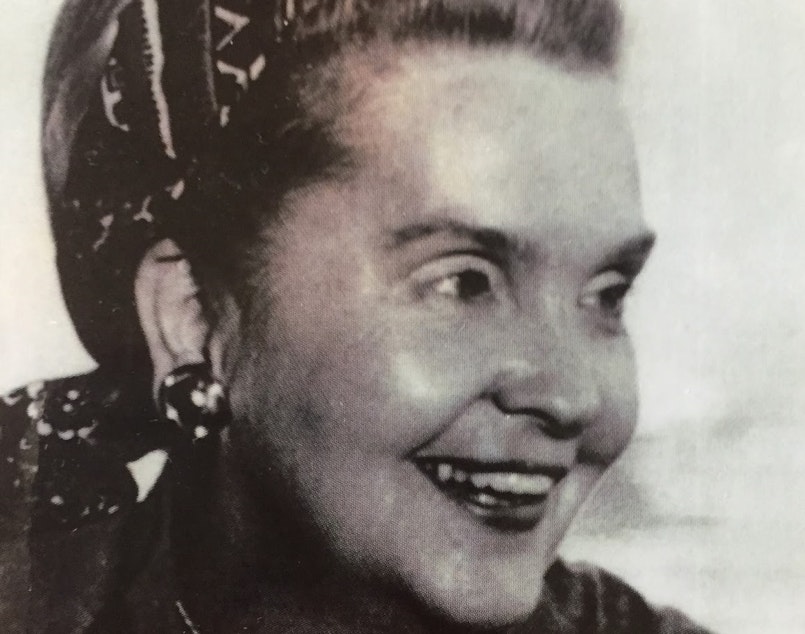How to be a feminist, and other lessons from my grandma’s badass friend

In recent years, modern movements like the Women’s March and #MeToo have garnered widespread momentum. Ninety one-year-old Alene Moris started fighting the battle for women’s rights long ago.
Alene Moris is small in size, but she still seems to fill the room. She has a commanding presence when she speaks, and despite age, her mind is incredibly sharp.
Alene’s confident character was instilled in her from a young age. Her father served in the Canadian parliament and her mother led the Women’s Christian Temperance Union.
“Back in the 1930s," she told me, "women didn't take leadership roles, but my mother did. That was influential. I realized that I could be a leader."
After graduating high school, Alene enrolled in an American college. From day one, the sexism was prevalent.
“I wanted to take some classes in radio," she recalled, "but they said, 'No, we don't let women take that kind of course because nobody wants to listen to women on the radio.'"
Sponsored
Despite her frustration, Alene didn’t push back. “I went along with the culture, the culture that says women can't do this and they can't do that. I should have just said to hell with all that.”

After graduating, Alene got married. A few years later, she and her husband found themselves living in Borneo just as the Vietnam war was escalating.
Alene was upset and confused by the events in Vietnam and wanted to understand the background of the conflict. She spent a full weekend reading day and night only to discover something that shocked her: not a single woman had been involved in the conflict’s decision-making process.
“Everybody that made the decision to be in Vietnam, a terrible terrible decision, were all men," she said. "There was not a single woman involved. That's when I realized that I had to spend the rest of my life getting women into politics."
Sponsored
When Alene returned to the US, she headed back to college. She became known on campus and found herself at the center of many student protests. One day, she was at a march against the war in Vietnam.
“Most of the people that were marching were men," she said, "but there were a few women and they wanted me to be at the head of the march." She moved to the front of the protest, but was arrested and jailed.
Sponsored
Alene’s journey finally brought her to Seattle where she helped establish a women’s center at the University of Washington in her name. She also went to head a consulting group and even spent time giving speeches with the Untied Nations.
All of Alene’s experiences underscore her belief in the importance of having women in leadership.
“They are desperately needed if the world is going to survive," she said, "because if there is no change in the way we are operating, we're going to ruin our country."
For Alene, feminism means giving women the respect and honor they deserve. Our culture, on the other hand, imposes value on women based on beauty and marriage. At the same time, she emphasizes that feminism isn’t supposed to be anti-male because it empowers women.
“I love men," she told me. "What we need to do is have an equal number of women and men so we have a balance in the way of thinking."
Sponsored
"They call it yin yang. They say the only way you'll have wisdom is if you have both yin and yang. That's feminine and masculine. If you have them together you'll have the wisdom to not have violence.”

As I sat listening to Alene speak in her apartment, I was filled with a warm sense of encouragement. I often see my peers and other youth outspoken about such issues, but to see a woman who has spent so much time in this arena continue to be so dedicated to her beliefs is reassuring. It gave me hope to see that even as the years have passed, Alene still holds on to the passion that first inspired her.
“I would say no matter what, what kind of pain it causes, it's worth it," she said. "So you've got to be part of the revolution— and what's going on is a revolution of half the human race saying we are not going to be second class anymore.”
This story was created in KUOW's RadioActive Advanced Producers Workshop for teenagers, with production support from Kamna Shastri. Edited by Marcie Silman.
Sponsored
Find RadioActive on Facebook, Twitter and Instagram, and on the RadioActive podcast.
Support for KUOW's RadioActive comes from the Bill & Melinda Gates Foundation Discovery Center.



